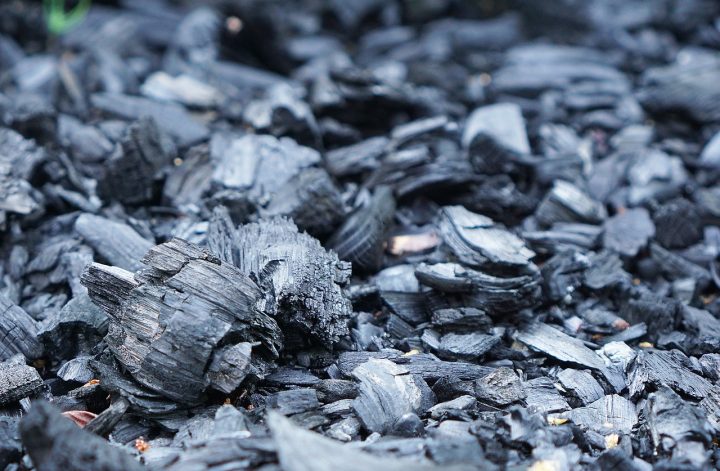What is Biochar?
Biochar is the word used to define the charcoal formed from the pyrolysis (thermal decomposition) of various types of organic matter but specifically biological constituents like plants or vegetation etc. The main purpose of this charcoal- biochar that is produced this way is to store it in the soil for carbon sequestration.
Biological and organic substances like plant waste, wood chips, corn stalks, leaf residue, hay stalks, forestry and other types of agricultural waste (basically biomass) is burned in a container with limited oxygen to produce a light charcoal that looks almost just like normal coal. Biochar is the most efficient way to capture carbon and store it in a stable form.
Also check out: What Is Biochar? – Uses, Advantages and Disadvantages
Application of Biochar:
Biochar is the most efficient way for carbon sequestration but also can help in mitigating climate change in various ways.
- Improving Soil Quality– soil which store biochar/carbon have shown results in which plants grow more fast and nutrient dense than neighboring soils which do not have stored carbon. Thus, this stored carbon in the form of biochar improves soil fertility vastly.
- Enhances Soil and Compost Properties: Soil degradation is a valid and persistent problem in the agricultural sector and this can be solved by applying biochar to the soil that will enhance soil structure. It is also beneficial for composting as it reduces the green house gas emissions by carbon storage in soil and helps increase the retention of nutrients in soil, reduces the compost’s bulk density and odor.
- Maintains pH: Adding Biochar to soil helps decrease its pH which can be beneficial for the growth of many evergreens and deciduous plants. It also improves soil electrical conductivity
- Increased Water Retention and also decreases nitrogen leaching. It prevents ammonia losses from the soil and improves the compost formation
- GHG Sequestration: Apart from storing carbon in a stable form, biochar application also involves reduction in NOx emissions and acts as a sink for reducing GHGs.
- Improves soil porosity and permeability. Can be used as a soil conditioner. It increases the soil’s carbon exchange capacity
- It is beneficial for the microhabitats of microbes and allows them to thrive in a healthy soil environment that allows better nutrient availability for plants to take up and also helps many microbes such as those that fix nitrogen for plant roots. The microbial population in turn then help accelerate the composting process.
Pros of Biochar Production:
- Clean Energy: The heat produced during thermal decomposition or pyrolysis of the organic waste can be used as a source of clean energy that can be used for any other process. This makes biochar production very sustainable and overall efficient as it not just provides a way to store carbon, but also the process used to make it can generate clean energy. This can be used as an alternative to Fossil fuels that cause global warming.
- Low-cost: The process of biochar production can be replicated easily at home on modified stoves or kilns as it can be at a large scale biochar production facility. It is possible to make biochar on farm easily by a small scale biochar machine.
- Reduction of Farm/Organic Waste: using organic or farm waste to make biochar is not only a beneficial practice for agricultural purposes but it also provides solutions to many environmental problems. It can reduce waste and thus solve the problem of dumping or disposing of the waste. (Spears, 2018)
- It can decrease ground water pollution: its application can help soil retain water and also remove contaminants that can potentially contaminate both the soil and underground water sources.
- Reduces carbon dioxide in the atmosphere and has the capacity to store it in the soil for as long as one would like.
- Greater crop yield as better soil quality means improved permeability, better water retention and thus reduced nutrient and water leaching.
- Easy application: can be directly applied on topsoil, directly as activated biochar on plant roots or even after mixing it with manure or soil or with compost.
Cons of Biochar Production:
- Biochar production depends on the quality and type of organic matter used and at what temperature it is decomposed. For instance, the end product for wheat straws may not result in a biochar that is of similar high quality as that of pine stalks. (Jahromi, n.d.)
- Difficult to replicate at home as it needs higher temperatures.
- Studies are still being conducted for conclusive results on its benefits on all soil types.
On a practical level, we know you can certainly burn/heat organic matter and end up with something that looks like biochar. But unless you take it to a lab we can not say with surety that this is what biochar actually is composed of in terms of its structural and chemical properties. - Heating organic matter can lead to the release of gases that are toxic or harmful to the environment, like methane and carbon monoxide. It can also leave a residue of tar on the end product, so it’s not as simple as just heating up some biomass.
- Dividing opinions on biochar production since it entails more trees or plants to be grown for the sole purpose of being cut down so that it can be used to make biochar.
Conclusion:
The biochar has significant history despite now being hailed as a new discovery or alternative. The ancient indigenous people of the Amazon used to make patches of dark, rich and fertile soils called Terra Preta (dark earth) which consisted of biochar from various agricultural practices or might even be created unintentionally. This 2000 year old practice was used for the purpose of soil enrichment. Therefore, it may be safe to say that biochar application may have the answer to solve a number of key environmental problems.
References:
- Spears, S. (2018, May 16) What is Biochar. Retrieved from https://regenerationinternational.org/2018/05/16/what-is-biochar/ on 7 July 2023
- Jahromi, B.N. What is Biochar and How Different Biochar Can Improve Your Crops. https://extension.tennessee.edu/publications/Documents/W829.pdf Accessed 7 July 2023
We hope you liked this post! Please comment below if you have any suggestions, comments or feedbacks! We at #envpk love hearing from readers! Thanks!




